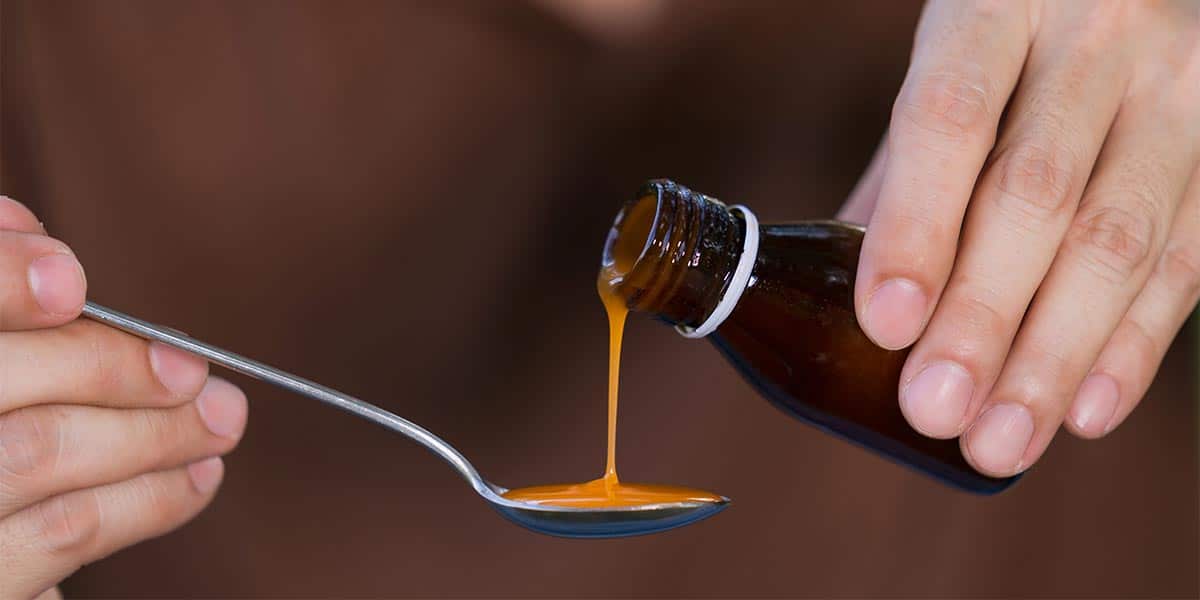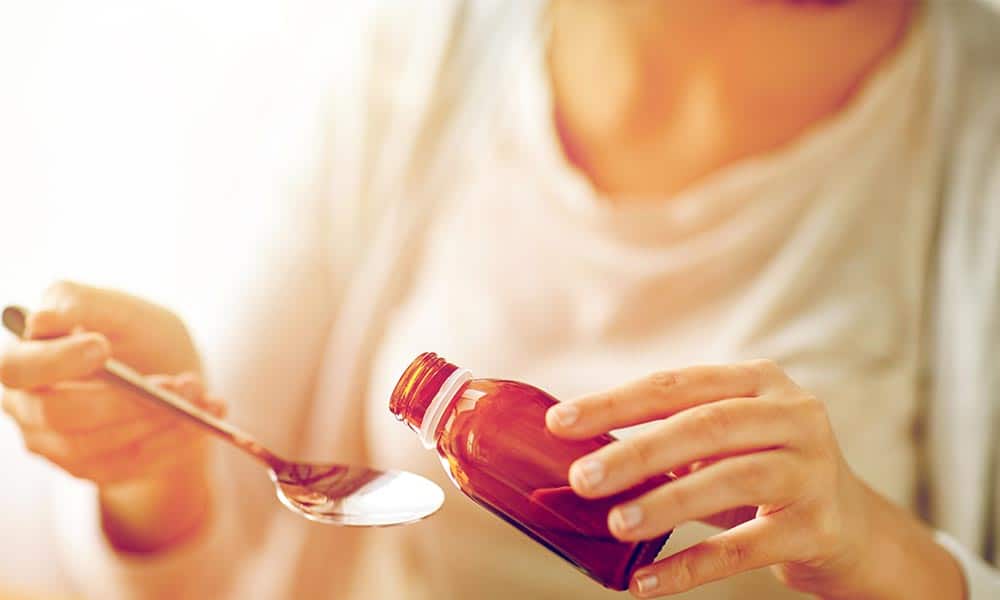Substances | 4 min read
How Long Does NyQuil Last? Effects, Detection, and More
Medically Reviewed By

September 22, 2025
Written By
On September 22, 2025

What you will learn
- NyQuil serves as a nighttime cold and flu medication that combines acetaminophen, dextromethorphan, and doxylamine succinate to treat multiple symptoms while promoting sleep.
- The medication's effects typically last four to six hours, with peak effectiveness occurring within one to two hours of taking a dose.
- Several factors influence duration, including body weight, metabolism, age, and overall health status.
- NyQuil has the potential for dependence, particularly from the dextromethorphan component, when used in excess of recommended dosages or timeframes.
- Safe use requires following dosing guidelines, avoiding alcohol, planning for adequate sleep time, and limiting use to short-term symptom relief during illness.
NyQuil provides symptom relief that typically lasts four to six hours after you take a dose. The medication contains multiple active ingredients that work together to address cold and flu symptoms, with each component having slightly different durations in your system. Most people find that NyQuil’s effects peak within one to two hours of consumption and gradually diminish over the next several hours. The timing varies based on factors like your metabolism and body weight.
What is NyQuil Used For?
NyQuil serves as a nighttime cold and flu medication designed to relieve multiple symptoms while helping you sleep.[1] The over-the-counter medication targets common cold and flu symptoms, including nasal congestion, cough, minor aches and pains, fever, runny nose, and sneezing.
The medication combines several active ingredients to address different aspects of cold and flu discomfort.[2] Acetaminophen reduces fever and relieves minor aches and pains, while dextromethorphan suppresses cough. Doxylamine succinate acts as an antihistamine to reduce a runny nose and sneezing, while also providing sedating effects that promote sleep. This multi-symptom approach makes NyQuil particularly effective for nighttime use when you want uninterrupted rest while your body recovers from illness.
The Effects of NyQuil
NyQuil produces several effects on your body as its active ingredients work to relieve cold and flu symptoms and promote sleep:[3]
- Drowsiness and sedation: Doxylamine succinate causes significant sleepiness, making you feel tired and ready for bed.
- Cough suppression: Dextromethorphan reduces the urge to cough by affecting the brain’s cough center.
- Pain and fever relief: Acetaminophen lowers body temperature and reduces minor aches, headaches, and muscle pain.
- Nasal drying: The antihistamine component dries up a runny nose and reduces sneezing by blocking histamine receptors.
- Reduced congestion: Ingredients help clear nasal passages and make breathing easier.
- Altered coordination: The sedating effects can impair your balance, reaction time, and motor skills.
- Grogginess: Some people experience lingering drowsiness the following morning, especially if they don’t get adequate sleep.
How Long Do NyQuil’s Effects Last for Cold and Flu Symptom Relief?
NyQuil’s symptom relief typically lasts four to six hours after you take a dose.[4] The medication reaches peak effectiveness within one to two hours of consumption, providing maximum relief during this window. Most people experience a gradual diminishing of effects over the following hours, with symptoms potentially returning by the six-hour mark.
The duration varies depending on the symptoms being treated. Cough suppression from dextromethorphan often lasts for the full four to six hours, while pain and fever relief from acetaminophen may begin to wear off around the four-hour mark. The antihistamine effects that reduce runny nose and sneezing typically maintain effectiveness for the entire duration. Your individual metabolism, body weight, and symptom severity can influence how long you experience relief, with some people finding effects last closer to four hours while others get relief for the full six hours.
Factors That Influence How Long NyQuil’s Effects Last
A few factors determine how long NyQuil remains effective in your system, from the amount you take to your individual body characteristics:[5]
- Dosage amount: Taking the recommended dose provides a standard duration (4 to 6 hours); taking less may shorten its effectiveness.
- Age: Older adults often process medications more slowly, which can extend NyQuil’s effects.
- Metabolism rate: People with faster metabolisms break down the active ingredients more quickly.
- Food intake: Taking NyQuil on an empty stomach typically leads to faster absorption but may also result in quicker elimination.
- Liver function: Your liver processes acetaminophen and other components, so liver health affects how long the effects last.
- Tolerance levels: Regular use can build tolerance, potentially reducing the duration and intensity of effects.
- Overall health status: Illness, dehydration, or other health conditions can alter how your body processes the medication.
- Other medications: Certain drugs can interact with NyQuil’s components, altering how long they remain active.
- Hydration levels: Proper hydration helps your body eliminate medications at a normal rate.
Is NyQuil Addictive?
NyQuil has the potential for dependence, though it’s not typically considered highly addictive when used as directed. The primary concern comes from dextromethorphan, the cough suppressant ingredient that can produce euphoric effects when taken in large quantities.[6] Some people develop a psychological dependence on NyQuil’s sedating effects, relying on it nightly for sleep rather than just during illness. Physical dependence can occur with regular, prolonged use, leading to withdrawal symptoms when you stop taking the medication.
The risk of addiction increases significantly when people exceed recommended dosages or use NyQuil recreationally. Taking large amounts of dextromethorphan can cause dissociative effects similar to other substances of abuse. Additionally, some people become dependent on the sleep-inducing properties of doxylamine succinate, using NyQuil as a sleep aid beyond its intended use as a cold and flu treatment. Healthcare providers recommend using NyQuil only as directed during a temporary illness to minimize the risk of dependence or addiction.
How to Use NyQuil Safely and Make Informed Decisions
Following proper dosing guidelines and timing recommendations helps you maximize the benefits of NyQuil while minimizing risks. Take only the recommended dose printed on the package, typically one dose every six hours as needed, and never exceed four doses in a 24-hour period.
Read the label carefully to check for interactions with other medications you’re taking, particularly those containing acetaminophen, antihistamines, or other cold remedies. Avoid alcohol while using NyQuil, as the combination can increase drowsiness and potentially cause dangerous side effects.
Consider your daily activities and responsibilities before taking NyQuil, as the medication can cause significant drowsiness that may persist into the next day. Plan to take your dose when you can commit to at least seven to eight hours of sleep, and avoid driving or operating machinery for at least eight hours after consumption. People with certain health conditions, including liver disease, breathing problems, glaucoma, or an enlarged prostate, should consult healthcare providers before using NyQuil.
Make informed decisions about the duration of use by limiting NyQuil to short-term symptom relief during active illness. Stop using the medication once your cold or flu symptoms resolve, and don’t use it as a regular sleep aid. If your symptoms persist for more than seven days or worsen while taking NyQuil, contact your healthcare provider for evaluation. Keep track of how the medication affects you personally, noting any unusual side effects or prolonged drowsiness that may influence your decision to continue using it.
Frequently Asked Questions About The Duration of NyQuil’s Effects
You should wait at least six hours between doses of this over-the-counter medication, even if cold symptoms return sooner. Taking NyQuil more frequently than recommended can increase your risk of side effects and potential liver damage from the acetaminophen component.
If your common cold or flu symptoms persist for more than a week, consult your healthcare provider about alternative treatment options.
The antihistamine doxylamine succinate in NyQuil cold and flu formulations has long-lasting sedative effects that can cause lingering sleepiness. This over-the-counter sleep aid component may last longer than the pain reliever and cough suppressant ingredients, especially if you didn’t get adequate sleep or took a dose late in the evening.
Wait at least eight hours after your last dose of NyQuil before driving or operating machinery, as the drowsiness and side effects of NyQuil can impair your coordination and reaction time. The sedative effects from this OTC medication can be unpredictable, and some people experience prolonged sleepiness that may affect their ability to drive safely even the next day.
Each component of NyQuil has a different duration of effects in your system. The acetaminophen pain reliever and fever reducer typically provides relief for four to six hours, while dextromethorphan, as a cough suppressant, may remain effective for the whole six-hour period. The antihistamine doxylamine succinate not only treats runny nose and sneezing but also produces sedative effects that can last eight to twelve hours.
Ascendant New York Editorial Guidelines
Here at Ascendant New York, we understand the importance of having access to accurate medical information you can trust, especially when you or a loved one is suffering from addiction. Find out more on our policy.
[1, 2, 3] Nyquil Cold and Flu Uses, Side Effects & Warnings. (n.d.). Drugs.com. https://www.drugs.com/mtm/nyquil-cold-and-flu.html on August 28, 2025
[4, 5] How long does Nyquil last? Drugs.com. https://www.drugs.com/medical-answers/long-nyquil-3566188/ on August 28, 2025
[6] Mutschler, J., Koopmann, A., Grosshans, M., Hermann, D., Mann, K., & Kiefer, F. (2010). Dextromethorphan Withdrawal and Dependence Syndrome. Deutsches Aerzteblatt Online. https://pmc.ncbi.nlm.nih.gov/articles/PMC2925345/ on August 28, 2025




